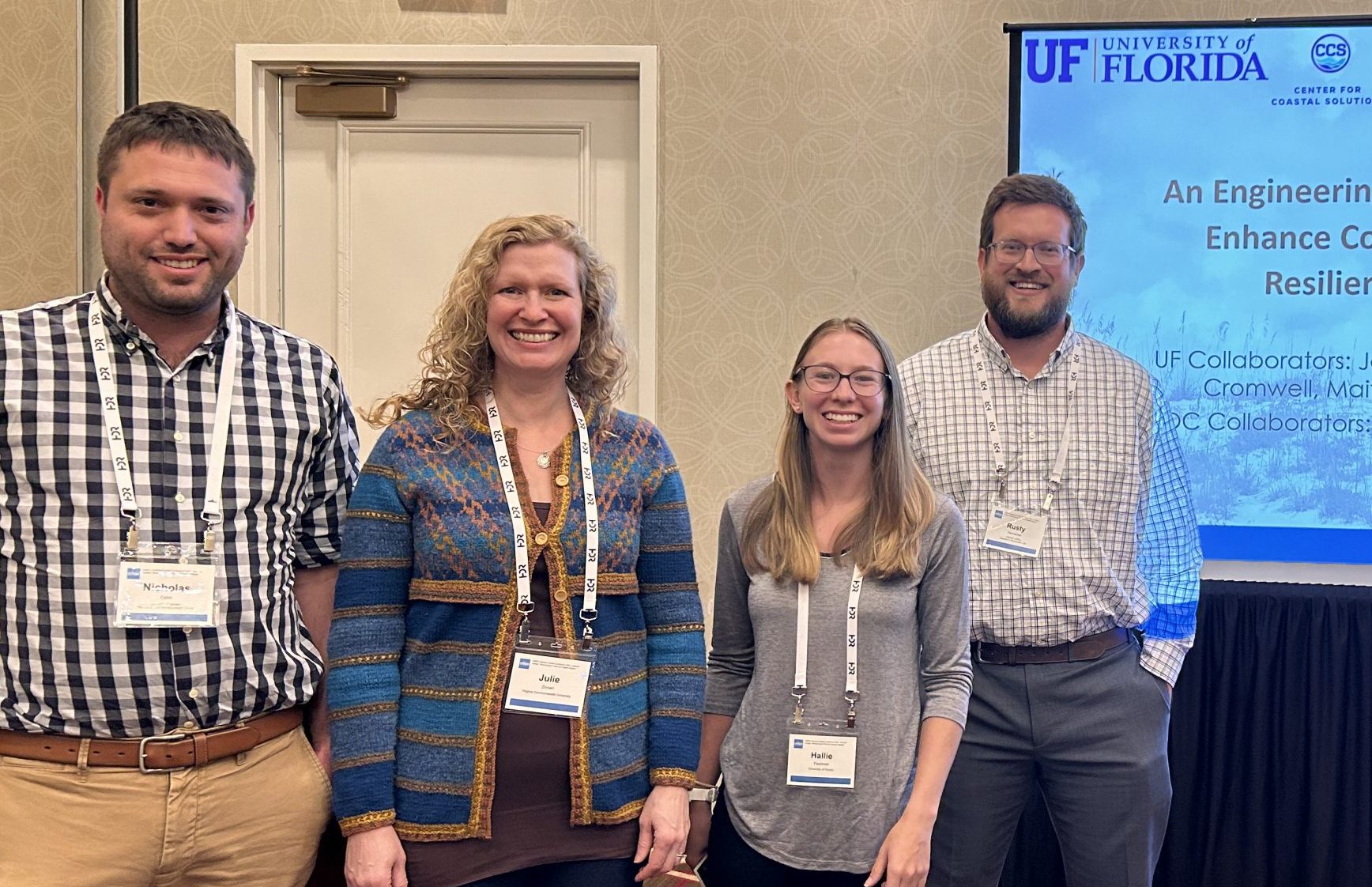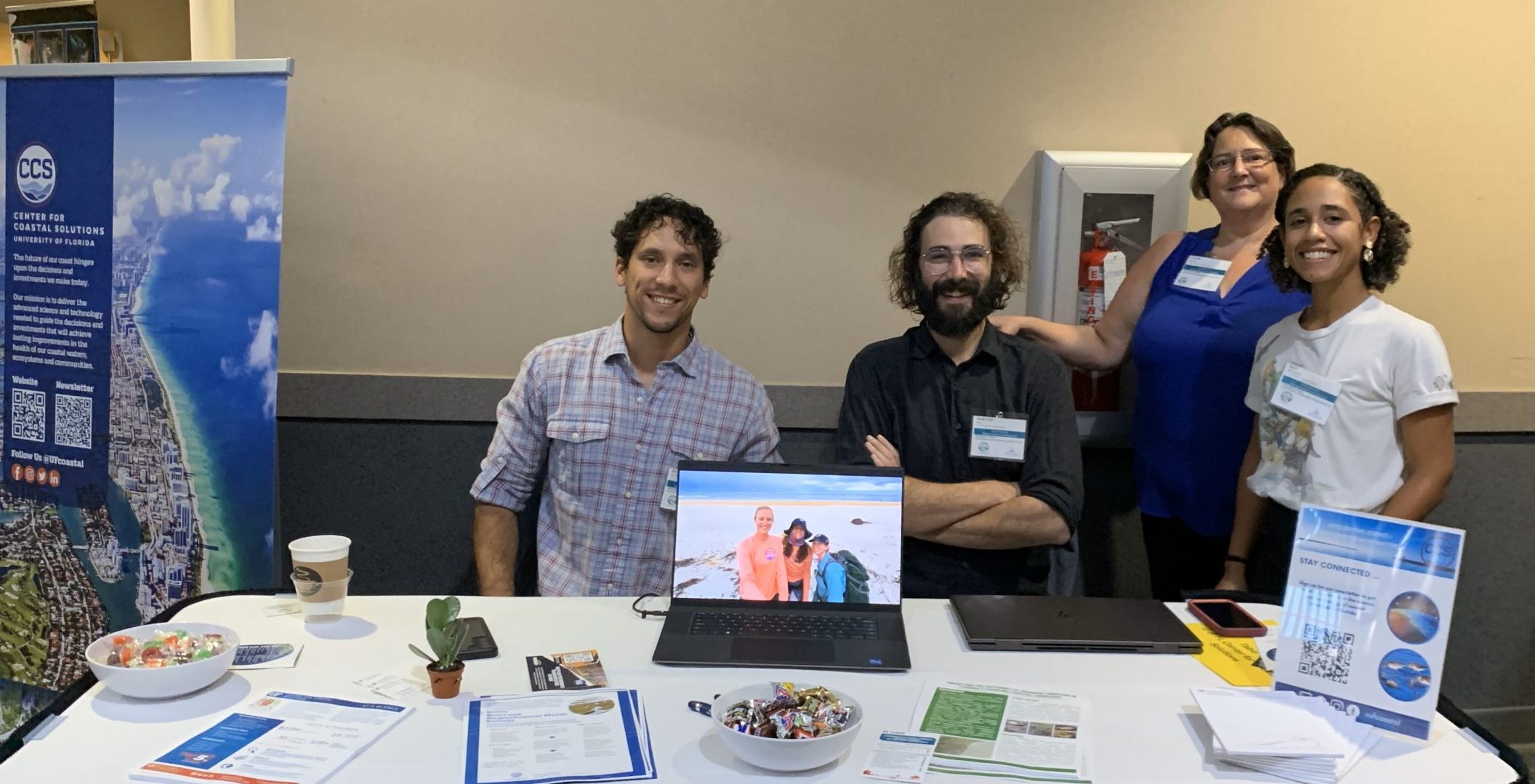In October, researchers from the UF Center for Coastal Solutions (CCS) and the U.S. Army Corps of Engineers Engineer Research and Development Center (USACE – ERDC) shared their efforts to improve coastal dune restoration and resilience in northeast Florida with researchers from around the country at the 2023 American Shore and Beach Preservation Association (ASBPA) National Coastal Conference in Rhode Island.

“My favorite part of the conference was learning about all the dune work that is going on around the country and connecting with friends and collaborators that I have previously worked with,” said Hallie Fischman, a Ph.D. student in the lab of Christine Angelini, Ph.D., associate professor in the environmental engineering sciences department. “It was also very interesting to learn about some of the advancements in the field of coastal restoration more broadly and see examples of projects that have been deployed.”
Fischman co-led a special session with Leigh Provost, ERDC research coastal engineer, Nicholas Cohn, Ph.D., ERDC research oceanographer and Julie Zinnert, Ph.D., associate professor at Virginia Commonwealth University, to discuss dune management and restoration. Fischman highlighted how UF and ERDC are speeding up dune restoration with plant species bitter panicum and sea oats. The team is also investigating how restoration history influences dune stability and resistance, and how restored dunes evolve in comparison to natural dunes. This knowledge will inform large-scale beach and dune nourishment and restoration.
The annual ASBPA National Coastal Conference is dedicated to promoting the preservation and protection of coasts through the integration of science and public policy. This year’s conference theme was “Anchors Aweigh: Revolutionary Times for Coastal Habitats,” emphasizing the diversity of coastal habitats and stakeholders.
Engaging with a resilient Jacksonville
On Florida’s east coast, CCS Ph.D. students Britney Hay and Adam Hymel, Postdoctoral Associate Joe Morton, Ph.D. and Researcher Tricia Kyzar, Ph.D., chatted with hundreds of attendees during the Jacksonville Environmental Symposium on October 13.

“It was good to network with people from all across the state and see their interest in our work,” said Britney Hay, a Ph.D. student in the lab of Andrew Altieri, Ph.D., assistant professor in the environmental engineering sciences department.
The annual symposium fosters interaction between community members and regulatory agencies to better understand the city’s environmental goals and make progress in protecting its natural resources. As the city finalizes its resilience strategy to environmental shocks and stresses, this year’s conference theme was “From Vision to Action: Achieving a Resilient Jacksonville.”
Academic and industry conferences present valuable opportunities for the CCS team to learn about cutting edge research and applications, and build strong relationships with a diverse network of professionals working toward the common goal of healthier coasts for the future.